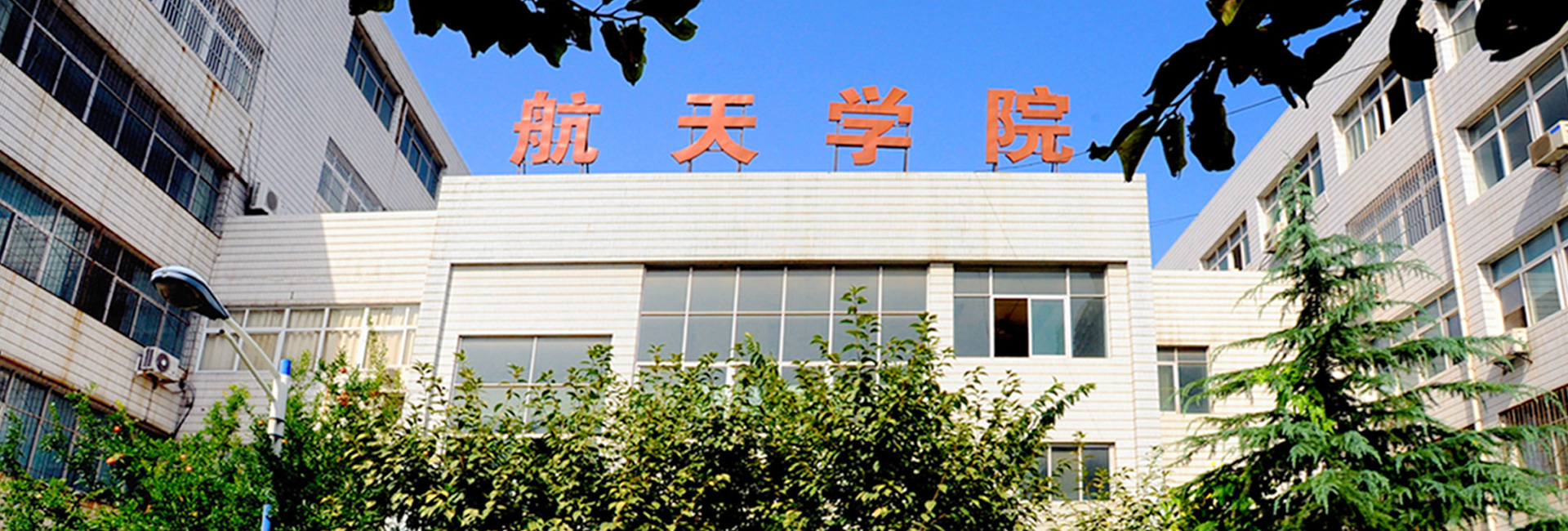航天学院
School of Astronautics
西北工业大学航天学院源于1958年创建的宇航工程系,是我国最早成立的宇航院系之一。1988年12月,在宇航工程系的基础上成立了航天工程学院。2003年7月,更名为航天学院。在60余年的办学历程中,学院始终坚持以培养高素质航天创新人才为己任,服务国家和国防重大战略需求,为国家航天事业发展和国民经济建设贡献力量。近年来先后荣获“全国党建工作标杆院系”、省师德建设先进集体等荣誉。

School of Astronautics was founded in 1958, based on Department of Aerospace Engineering and is one of the earliest to focus on the astronautical technology in China.
Currently, school of astronautics is composed of 5 departments, 1 research institution, 2 National Key Laboratory, 2 Provincial Key Laboratory and Engineering Research Center .
Following the spirit of NPU, School of Astronautics has made remarkable achievement in training students and had high social reputation. It has cultivated more than 6000 senior talents specialized in aeronautics and astronautics, 2 of which are China's Top Ten Outstanding Youth.
Aiming at applying basic research into practice and meeting needs of national strategy, School of Astronautics undertook many research tasks and a number of important research results have been achieved, including development of more than 20 types of space vehicles, carrier rocket and satellites. The school was cited by Manned Space Engineering Office for it's remarkable contributions to China’s first manned flight test. School of Astronautics has become an influential institute in training excellent students and doing scientific research.
附件 Attachment:
02. 2025学年航天学院硕士国际学生招生专业及导师信息表 Supervisor and Major List for 2025 Master Application-School of Astronautics.pdf
重要提示 Notice:
1. 附件为航天学院2025年专业信息表与可接收硕士的导师信息表。
The attachments are the Major List and the Spervisor List that can accept the Master students of the School of Astronautics in the 2025 Academic Year.
2. 请根据此表中导师的教师主页信息以及研究方向选择并联系与你研究方向一致或相似的导师,请不要群发邮件。
Please contact the supervisor according to the their researsh direction and Teacher Website Page information.
Do not send the MASS EMAIL.
航天学院硕士专业介绍 The Major Introduction for the School of Astronautics |
专业名称 Major | 专业方向名称 Research Direction | 专业介绍 Major Introduction | 专业核心课程名称 Core Courses | 先修课程名称 Prerequisite Courses |
航空宇航科学与技术
Aeronautical and Astronautical Science and Technology | 航空宇航推进理论与工程
Aerospace Propulsion Theory and Engineering |
研究航空飞行器动力、航天飞行器动力、空天组合动力、空天能源利用所涉及的基础理论、基本方法、工作过程分析及设计与应用技术。主要包括:推进系统总体设计、推进系统气动热力理论与方法、推进系统工作过程数值模拟、推进系统结构强度与可靠性、推进系统控制、推进系统工作过程精细化测试与系统故障诊断、新型纳米能源材料、新型空天能源探索和利用、新概念发动机技术等。
Research the basic theories, methods and work process analysis of the Aircraft and Spacecraft power system、combined aerospace power system and aerospace energy utilization. Mainly include: propulsion system integrated design, propulsion system aerothermal theory and method, propulsion system working process numerical simulation, propulsion system structural strength and reliability, propulsion system control, propulsion system working process fine test and system fault diagnosis, new nano energy materials, exploration and utilization of novel aerospace energy, new concept engine technology, etc.
| 计算流体力学基础、传热传质学、航天发动机燃烧、航天发动机先进设计等
Fundamentals of Computational Fluid Dynamics, Heat and Mass Transfer, Aerospace Engine Combustion, Advanced Aerospace Engine Design, etc.
| 气体动力学/工程热物理
Pneumodynamics/
Engineering Thermophysics |
飞行器设计
Flight Vehicle Design |
以弹、箭、星、船、器等各类飞行器以及新一代航天航空装备设计与制造过程所面临的复杂工况、极端服役环境和精细化设计所涉及到的流体力学、结构力学、热力学、多场耦合力学问题为研究对象,研究飞行器物理原理和规律、准确表征复杂流动条件、极端服役条件下的空气动力学、材料与结构力学、热力学等宏微观行为的新理论。
主要包括:飞行器体系与系统工程、飞行器总体设计与综合技术、飞行器结构/综合设计分析与优化、飞行器飞行动力学与飞行控制、空气动力学及先进流动控制方法、先进结构及其力学行为、飞行器结构动力力学与控制、飞行器和动力装置的热力学、飞行器和动力装置的多场耦合力学等。
Taking fluid mechanics, structural mechanics, thermodynamics, and thermodynamics involved in the design and manufacturing process of the new generation aerospace equipment such as missile, rocket, satellite, spacecraft and space probe as as research object. Studying the physical principles and laws, characterizing the complex flow conditions in accuracy, aerodynamics under extreme service conditions, material and structural mechanics, and thermodynamics. Mainly include: aircraft system and system engineering, aircraft integrated design and technology, aircraft structure/comprehensive design analysis and optimization, aircraft flight dynamics and flying control, aerodynamics and advanced flow control methods, advanced structure and mechanical behavior, aircraft structural dynamic and control, thermodynamics of aircraft and power system, multi-field coupling mechanics of aircraft and power system, etc. | 飞行器飞行动力学与制导、飞行器总体设计、航天器相对运动动力学与控制、飞行器空气动力学、飞行器计算结构力学、高等结构动力学等
Aircraft Flight Dynamics and Guidance, Aircraft Integrated Design, Spacecraft Relative Motion Dynamics and Control, Aircraft Aerodynamics, Aircraft Computational Structural Mechanics, Advanced Structural Dynamics, etc.
| 理论力学
飞行力学与结构力学
Theoretical Mechanics/
Flight Mechanics and Structural Mechanics |
飞行器控制与信息工程
Aircraft control and Information Engineering |
以飞行器及系统为对象的信息处理、飞行控制、数据分发等为研究主体,主要面向空天平台开展对空、天、地、海信息获取、处理分发和平台控制及相关应用等方法与技术研究。主要包括:空天智能感知理论与技术、空天协同控制理论与技术、空天自主决策理论与技术、空天导航理论与技术、集群智能理论与技术、集群自组织网络通信理论与技术等。
Facing problems as information processing, flight control, data distribution of aircraft and its system. with aerospace platforms Carrying out technologies research such as information acquisition from air, space, earth, and sea, data processing and distribution, platform control and related applications . Mainly include: aerospace intelligent perception theory and technology, aerospace collaborative control theory and technology, aerospace autonomous decision-making theory and technology, aerospace navigation theory and technology, cluster intelligence theory and technology, cluster self-organizing network communication theory and technology, etc.
| 线性系统理论、自适应控制、系统辨识、现代鲁棒控制、人工智能理论、方法及应用等
Linear system theory, Adaptive control, System identification, Modern robust control, Artificial intelligence theory, Methods and applications, etc.
| 自动控制原理/航天器控制原理
Automatic Control Theory / Principles of Spacecraft Control |
控制科学与工程
Control science and Engineering | 导航、制导与控制
Navigation, guidance and control |
西北工业大学导航、制导与控制学科涵盖自动化学院、航天学院、航空学院和无人机研究所等多个教学科研单位,具有鲜明的航空航天特色,现有精确制导与控制、飞行器仿真与测试技术、先进控制理论与应用、飞机飞行控制与仿真以及先进惯性导航系统与技术等多个稳定而有特色的学术方向。拥有“无人机特种技术国防科技重点实验室”和“微小卫星技术及应用国家地方联合工程实验室”2个国家级实验室。形成了基础研究、应用基础研究和工程应用有机结合的科研体系。
The navigation, guidance and control lab of Northwestern Polytechnical University cover multiple teaching and research units such as the School of Automation, the School of Astronautics, the School of Aeronautics, and the UAV Institute which has obvious Aerospace feature. The lab now has a series of stable and characteristic academic research directions which contains Advanced control theory and application, Aircraft flight control and simulation, Advanced inertial navigation system and technology and so on. Which has two national-level laboratories, the "Key Laboratory of UAV Special Technology for National Defense Technology" and the "National and Local Joint Engineering Laboratory for Microsatellite Technology and Application". A scientific research system combining basic research, applied basic research and engineering application has been formed.
| 现代鲁棒控制理论及应用、系统辨识理论及应用、自适应控制理论及应用等
Modern Robust Control Theory and Application, System Identification Theory and Application, Adaptive Control Theory and Application, etc.
| 自动控制原理
Automatic control theory |